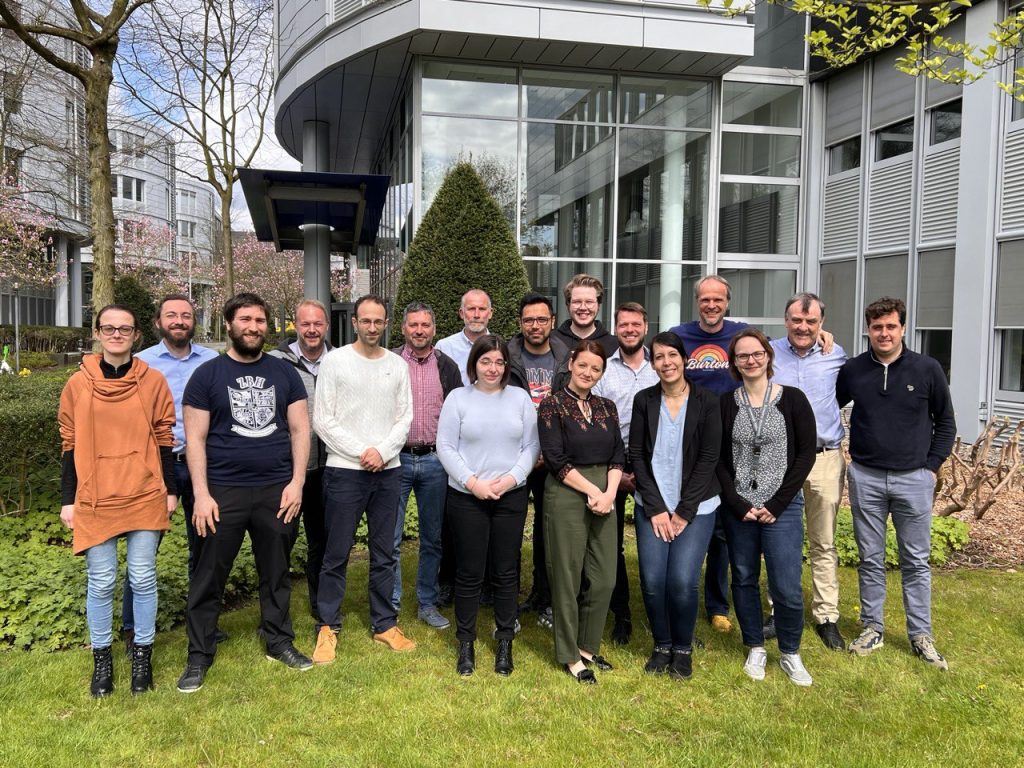Microb-AI-ome project kicks off!
In April, the Horizon Europe project Microb-AI-ome kicks off in Hamburg, Germany. The event was hosted by the project’s coordinator Prof. Dr. Jan Baumbach, from the University of Hamburg. Egnosis, as one of eight partner organizations, also attended the meeting. The Microb-AI-ome consortium combines expertise in CRC and its treatment, microbiomics, artificial intelligence, software development, and privacy protection to close the gap between privacy and big data in international medical research.

What is Microb-AI-ome’s goal?
Colorectal cancer (CRC) is the 2nd most common type of cancer in the world (WHO Global Health Estimates 2019). However, identifying CRC early improves disease prognoses and as such lessens the disease burden on the individual and on society. Current CRC screening programs utilize a quantitative fecal immunological test (FIT) to predict the need for colonoscopy for the detection of colorectal lesions indicative of CRC. Yet, the FIT has a high false-positive rate of over 37% leading to many unnecessary, unpleasant, invasive and costly colonoscopies. Microb-AI-ome aims to reduce this false-positive rate by 20% points by utilizing powerful information hidden in our stool microbiome.
What is Microb-AI-ome’s approach?
Artificial intelligence (AI) and machine learning (ML) technology have started to pave the way toward highly personalized medicine. However, while the number of identified associations between microbiome profiles and CRC has been rising in recent years, robust AI models for personalized prediction of a need for a colonoscopy are still missing. The big data needed to train such models is distributed over many repositories around the globe, and privacy regulations are hindering its effective integration. With Microb-AI-ome, we will overcome this barrier by establishing the first privacy-preserving federated big data network for CRC research.
We will integrate isolated, national databases into one international federated database network – rather than a cloud – covering metagenomes for over 4,000 individuals screened for CRC and an expected total of 100,000 by 2026. Microb-AI-ome ensures that no sensitive patient data will leave the safe harbors of the local databases while still allowing for the training of robust AI models, which we will demonstrate in clinical practice allowing regulatory bodies to adopt evidence-based guidelines.
Built for success: Microb-AI-omes structure
The Microb-AI-ome project is divided into six core areas:
(1) Creation of a federated database network for international CRC data;
(2) application and validation of federated AI models;
(3) data collection and management,
(4) development of federated AI models;
(5) generation of evidence-based guidelines; and finally
(6) legal and ethical assessment.
Exploitation, dissemination, communication and management work packages ensure project success and sustainability beyond the project’s runtime.
Finally, the Microb-AI-ome consortium consists of the following partners:
- UNIVERSITY OF HAMBURG, Germany (coordinating institution)
- UNIVERSITY COLLEGE CORK, Ireland
- GNOME DESIGN SRL, Romania
- TP21 GMBH, Germany
- RESEARCH INSTITUTE AG & CO KG, Austria
- INSTITUT NATIONAL DE RECHERCHE POUR L’AGRICULTURE, L’ALIMENTATION ET L’ENVIRONNEMENT, France
- ASSISTANCE PUBLIQUE HOPITAUX DE PARIS, France
- MATER MISERICORDIAE UNIVERSITY HOSPITAL, Ireland
